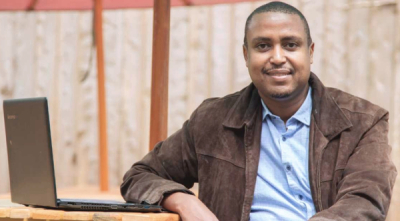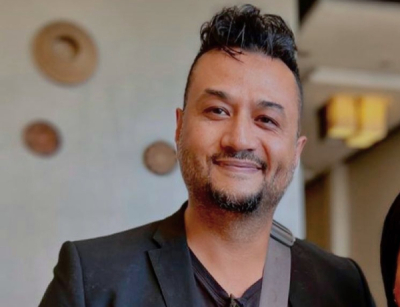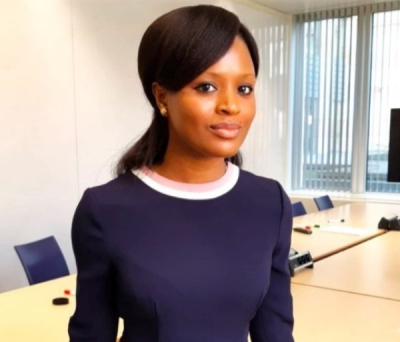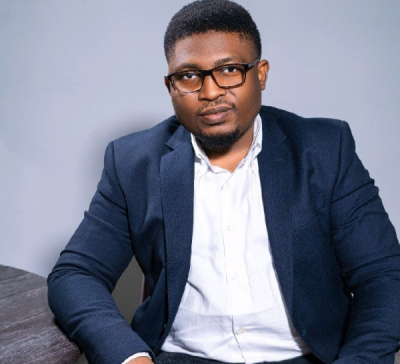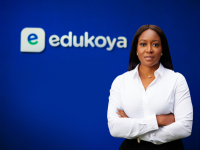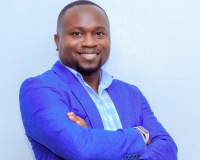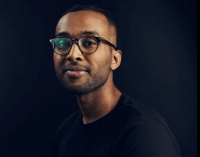
TECH STARS (1006)
Over the past three years, she has provided quality fintech, edtech, and enterprise solutions in the Cameroonian market. Her startup has developed a payment solution that has become a reference means for tuition payment in secondary schools in Cameroon.
Ako Joelle (photo) is a Cameroonian computer scientist and entrepreneur. In 2018, the same year she graduated from the University of Buea with a Bachelor of Computer Engineering, she co-founded Innovative Clan (I-Clan), a Douala-based startup.
The startup, whose co-founders are all computer science graduates, commits to developing software that solves major social issues. With her team, Joelle -who heads I-Clan as the CEO- developed a payment platform that allows schools to collect tuition via local mobile payment methods while ensuring financial transparency and also tracking the funds collected. The solution can be used by parents with or without an internet connection, thanks to the USSD technology. Currently, it is the major platform used by most Cameroonian secondary schools to collect their tuition fees. The country’s examination boards also adopted it as the official means for exam fee payment.
Before embarking on the I-Clan adventure, Ako Joelle worked, as a front-end developer, for the job search engine Njorku Ltd. This year, she was selected among the female founders that will take part in the VC4A Venture Showcase 2022. In 2021, on behalf of I-Clan, she won the Hackathon PAK 2021 organized by the Port Authority of Kribi, Cameroon. Two years earlier, in Kenya, she was one of the finalists of the Daikin - Samurai Incubate Ideathon Airtech Bootcamp Africa. She was selected for the launch of the Youth Conneckt Africa initiative in Rwanda and invited to take part in the Google Sub-Saharan Africa Community Summit in Accra, Ghana.
Melchior Koba
The entrepreneur, with over 10 years of experience in the financial service sector, aspires to make a greater impact in her country and Africa. As part of this ambition, Chilufya Mutale (pictured) has co-created a startup and has received multiple awards within and beyond borders.
PremierCredit was launched in 2019. It offers an online microcredit and investment platform, operating in Zambia and Zimbabwe, that allows businesses and individuals to manage their finances more effectively by helping them save, borrow and invest easily to achieve their financial goals. The startup provides affordable credit to borrowers with flexible terms that contribute to financial inclusion and passive income for investors.
“We are building a Challenger bank for Africa that provides embedded finance that is inclusive and introduces previously disadvantaged income groups into formal financial services, thereby contributing positively to financial inclusion. PremierCredit contributes to economic growth through supporting SMEs, which form the backbone of economies in emerging markets, with capacity building through financial literacy as well as providing working capital solutions and investment services,” the co-founder and CEO said.
The certified expert in SME finance and risk management from the Frankfurt School of Finance & Management also holds a post-graduate degree in Project Management from Cavendish University in Zambia (2011). She also graduated from the University of Zambia with a Bachelor of Science in Natural Resource Management. The idea of founding PremierCredit was born out of her desire to better serve her clients by providing solutions that better meet their needs while she was still the CEO of ExpressCredit Zambia, a registered and licensed microfinance institution.
The professional life of Chilufya Mutale started in 2012 at FINCA, where she was the head of the local branch. She then went to ExpressCredit, and later became the Director and Consultant for Financial Services at BlueOrange in South Africa. She was one of 14 entrepreneurs selected in September for the VC4A Venture Showcase Africa 2022. She was connected with top venture capitalists as mentors and presented a pitch for her startup at the 9th Africa Early Stage Investor Summit held November 2-4. She is also one of the EY Entrepreneurial Winning Women 2022.
Chilufya Mutale is among the top 100 Zambian women who are taking the lead and inspiring transformation in 2022. She has been shortlisted for the Woman Innovator of the Year award at the Africa Tech Festival Awards 2022.
The tech entrepreneur heads several startups in Kenya. His ambition is to help households fend for themselves.
Sam Wanjohi (photo) is a Kenyan entrepreneur and founder of fintech startup Popote Payments Ltd. In 2013, he launched -through Popote Payments- Popote Pay, an expense management solution designed for African businesses. The solution allows businesses to easily pay for everything including supplies, salaries, utilities, and taxes. It also enables team collaboration in the payment workflow.
“Popote Pay allows businesses to link, and enables the payout of multiple bank accounts or mobile money wallets. Completed transactions are stored alongside their notes, attachments, authorization history, and accounting general ledger, meaning the accounting part is also done. At the click of a button, records can be retrieved for use in preparing management or audited accounts. The entire process is seamless,” Sam Wanjohi explained in 2021.
Popote Pay is the result of personal experience. Indeed, in 2012, Sam presented his concierge platform, Dash2do, at the Phocuswright Travel Innovation Summit. Thanks to the concierge platform, he was the third winner of the challenge and had to scale the solution in the U.S. This was a major headache as he still had to oversee his businesses in Kenya. So, he developed Popote Pay to be able to run his Kenyan operations remotely.
In 2007, the serial entrepreneur founded Foresights Interiors, a home furniture manufacturer. Five years later, he founded Foresight Ventures, a firm that develops tech solutions to solve day-to-day problems and invests in other innovative startups.
He is also the non-executive chairman of Foresight Housing Group, formed in 2018 with the acquisition of Foresight Interior and Economic Housing Group (established in 1972).
He entered the professional world, in 2002, working as a civil engineer for the British multinational professional services firm Arup. In 2005, he entered the real estate investment sector, kicking off his entrepreneurial career.
Melchior Koba
The physician has nearly 20 years of clinical experience in HIV/TB and 10 years of experience in the healthtech segment. The healthtech startup he founded provides effective and much-needed digital health solutions to “support self-care and provide access to services.”
Musaed Abrahams is a South African health professional and the founder/CEO of Aviro Health, a healthtech startup founded to improve access to quality healthcare in Africa.
“My goal is to create healthcare impact through technology by focusing on empathy, great design, and data,” his Linkedin profile reads.
His healthtech startup offers tech solutions that automate workflows, therefore allowing healthcare professionals to focus on important tasks. It also improves access to health information and provides digital consulting services. Currently, it claims more than 50,000 patients helped in South Africa and Kenya.
The startup developed Aviro Pocket Clinic to allow healthcare providers to easily and quickly perform digital HIV, tuberculosis, and diabetes checks. It also allows individuals to privatively perform those checks and access specialists and services for support when needed.
Its CEO holds a Bachelor of Medicine and Surgery (MBChB) obtained at the University of Cape Town in 2001. In 2010, he got an HIV management diploma from the Health Professions Council of South Africa. He also took part in the Harvard Business School’s Healthcare management program.
His professional career began in 2005 as a senior physician at the ARV Clinic in South Africa. He joined Médecin Sans Frontière (MSF) in 2008 as the HIV training coordinator in South Africa. Then, from 2013 to 2015, he worked as the organization's digital content producer and editor, contributing to the creation of the eighth edition of the MSF HIV/TB guide.
Currently, he is the deputy president of MSF's Southern Africa board. Between 2016 and 2017, he was a senior business development consultant for the health technology company Praekelt.org.
Let’s note that his startup, Aviro Health, was among the top 45 of the most innovative startups at the AfricaTech Awards 2022. It is also a beneficiary of the pan-African innovation program Investing in Innovation.
Melchior Koba
She is a lawyer with more than 10 years of experience working for Belgian law firms. Recognizing how difficult it is for residents to access legal information in Senegal and Africa in general, she decided to create a digital database of African laws.
Nafissatou Tine (photo) is a Senegalese lawyer and entrepreneur. She is the founder and CEO of Sunulex, a start-up that digitizes legal documents to facilitate certain procedures for the African and Senegalese diaspora.
Sunulex has two legal platforms. The first -Sunulex.sn- was created in 2016 to solve access to legal information and practitioners' challenges in Senegal. It is the reference legal platform in Senegal, listing Senegalese, OHADA, WAEMU, and ECOWAS legal texts and court decisions proclaimed by the Senegalese supreme court and the OHADA Common Court of Justice and Arbitration.
"I launched the Sunulex.sn legal platform in Senegal to provide online and organized access to Senegalese legislation for legal practitioners and citizens," she said in 2019.
The second platform is Sunulex Africa, which is an online database of African laws. It gives legal professionals access to the resources they need to advise, defend and enforce the right laws. Sunulex, which was created in 2020, contains over 70,000 official documents covering 15 French-speaking African countries and 8 regional economic zones.
Its originator graduated from the University of Tours with a master's degree in French private law in 2007 and from the Free University of Brussels with a master's degree in Belgian law in 2010 and a complementary master's degree in social law, labor law, and social security in 2011. In 2016, she also got a certificate in public management from the University of Wisconsin-Madison.
She started her professional career, in 2005, as an intern with the Senegalese human rights NGO RADDHO. In 2007, she joined Human Rights Watch as an intern, in Belgium. The following year, still in Belgium, she started teaching French at Global LT, and, in 2009, she became a federal public service employee at the Brussels Social Inspection Department.
From 2011 to 2012, she was a lawyer at Marx Van Ranst Vermeersch & Partners. She later became the lawyer representing the energy firm VWEW. Concurrently, she was a teaching and research assistant at the Catholic University of Leuven.
In 2014, Reliance Avocats hired her as an attorney, and in 2015 she became a research associate at the Pan African Institute of Strategies in Senegal. From 2017 to 2018, she worked, as a legal adviser, for the IT firm ETNIC. Nafissatou Tine won the 2018 African Diaspora Entrepreneurship Award in Belgium for Sunulex. Currently, she is an attorney at the law firm Sunulex lawyers, in Belgium.
Melchior Koba
The serial entrepreneur is the mastermind behind several tech solutions. He also developed Africa’s first humanoid robot, becoming one of the continent’s leading innovators.
Chuks Ekwueme (photo) is a Nigerian businessman and CEO of the Uniccon Group of Companies, which he founded in 2020. With the Uniccon Group, he aims to help Africans -both businesses and households- access the most innovative and impactful solutions to realize their full potential.
Uniccon Group specializes in STEM (Science, Technology, Engineering, and Mathematics), software development, e-commerce, agricultural value chain supply, and export logistics. It is also an expert in jewelry and international business consulting and advisory.
In October 2022, at the GITEX trade fair -Dubai, October 10-14, 2022- its CEO unveiled the first humanoid robot it developed, a first in Africa. The robot, baptized Omeife, can converse in several local and international languages including Igbo, French, English, Arabic, and Afrikaans. During his presentation, Chuks explained that the humanoid robot was developed by the Stem Focus Lab -a Uniccon Group of Companies’ project- and completed two days before the GITEX 2022.
Chucks has developed several other solutions such as SmartMedicare, SmartWorks, SmartFree, Payfocuss, and CloudFocus. In April 2022, he launched a US$40 million cybersecurity solution. The solution, called Lossless Security, provides organizations with a full range of cyber protection solutions including endpoint defense, fraud detection, and data transfer encryption.
Since 2009, the serial entrepreneur is the director of Coevis World, a distributor of gypsum-based construction materials in Nigeria. From 2014 to 2016, he worked as the chief technical officer and consultant of Divine Rewardn Services, a supplier of construction chemicals and structural sealant technologies.
In October 2022, he won the Excellence in Technology and Community Development Award at the Peace Achievers International Award.
Melchior Koba
The serial entrepreneur has developed innovative solutions in the education, finance, and fashion sectors. Her undisputable impact on the African tech ecosystem has earned her several awards.
Honey Ogundeyi (photo) is a Nigerian serial entrepreneur and the founder/CEO of edtech startup Edukoya. She founded Edukoya, in 2021, to build an e-learning platform dedicated to Africans.
With that platform, she connects learners to digital courses and on-demand teachers for live education. "We are building the largest learning platform in Africa. We are solving a real problem of lack of access to quality education in Africa," Honey Ogundeyi said in October 2022. She offers Edukoya users- notably students in primary and secondary schools- access to content that helps them prepare for exams and do their homework. She also offers access to a question bank with step-by-step guidance and a personalized performance tracking system.
"This model is unique in that we are reaching parents and learners 100% online and supporting them not only across exams but also the day-to-day learning, homework, support, etc.," the serial entrepreneur explains.
Before Edukoya, Honey Ogundeyi co-founded Nigerian digital bank Kuda in 2018 and led the company's marketing team until 2019. She also founded the online fashion retailer Fashpa.com in 2014.
She entered the professional world, in 2004, when she began working as an associate at UBA Group. In 2006, she joined consulting firm McKinsey & Company as a senior analyst.
From 2009 to 2012, the entrepreneur worked at Ericsson successively as a Senior Business Consultant in Lagos, Head of Brand Management in Sweden, and Head of Brand Management for the Sub-Saharan Africa region. In 2012, she started working as an Industry Manager for Google. She has also been the country director of the Department for Digital, Culture, Media, and Sport (DCMS)’s UK-Nigeria Tech Hub, from 2019 to 2021.
In 2018, she was appointed to the Facebook SME Council for Nigeria. Two years earlier, the World Economic Forum had named her among the top 10 innovators in Africa and she also made it to the list of the 10 most influential young Nigerians under 40 in technology. In 2014, Forbes magazine included her on its list of the top 10 emerging women entrepreneurs to watch in Africa.
Melchior Koba
As an experienced startup ecosystem builder, he launched his incubator to support entrepreneurs who want to solve Uganda's problems using digital tools.
Richard Zulu (photo) is a founding partner and leader of Outbox Uganda, an innovation hub based in Kampala. He founded the incubator, in 2012, to support businesses in their development stage.
Through Outbox -a Google for Startups’ partner- he helps new and aspiring African entrepreneurs interested in using technology to solve Uganda's problems. He provides entrepreneurs with a space to work, and access mentorship, training, markets, and financing.
‘It was about working with entrepreneurs, making sure they succeed, taking them through the process of how they go about the legal aspects, marketing, branding, building structures of a company and going as far as helping them to launch to market,’ he was explaining back in 2018.
With Outbox partners, he also organizes challenges to reward the best technological solutions in areas such as education, finance, agriculture, media, and entertainment. Through its project Primaa, the incubator is also building low-cost environmental monitoring stations to improve the availability of OpenData on air quality in African urban centers.
Richard Zulu is a former leader of the Kampala chapter of the Google Developer Group and a 2014 fellow of Acumen East Africa. He is also the director of the Kampala chapter of Startup Grind, a global community that aims to inspire, educate, and network entrepreneurs.
He entered the professional world, in 2010, working as a network administrator at Makerere University’s directorate for ICT support. A year later, while still at the ICT support directorate, he co-organized the Garage48 Kampala- a Bootcamp and startup hackathon series- and Start-up Weekend Kampala 2012, a tech Bootcamp.
In 2014, design studio IDEO.org hired him as the community manager of Amplify, its series of 10 design challenges focused on creating innovative solutions to pressing development problems. In August 2016, he officiated as a part-time innovative justice agent for Hiil, The Hague Institute for Innovation of Law. He has also worked as an Open Government Fellow at Code For Africa, an African network of labs that uses technology and OpenData to build digital solutions. In 2021, he joined Plan International as a human-centered design consultant for the Playful Futures program.
Melchior Koba
After his graduate studies in England, he returned to his native country to build his accelerator for effective support to techstart-ups.
Abdigani Diriye (photo) is a Somali-born computer scientist and tech innovator. He is, since 2014, the co-founder and director of Innovate Ventures, the first and leading startup accelerator in Somaliland and Somalia.
He co-founded the accelerator, in 2012, with two partners, to support “ambitious startups who use technology to change the world.” From inception to date, Innovate Ventures claims over US$150,000 invested in more than 54 startups. Its director also co-founded, in 2021, Bloom, a fintech startup that allows East Africans to save in US dollars and spend in local currencies. In 2011, he co-founded the professional network Worldwide Somali Students & Professionals, which he led till 2015.
From 2009 to 2012, Abdigani Diriye completed research internships at institutions including The Open University, Microsoft, and FX Palo Alto Laboratory in the US. He was then hired by Carnegie Mellon University as a postdoctoral researcher.
In 2013, IBM appointed him as a researcher and in 2016, he became the company's research director. With his team, he develops a machine learning approach that leverages new data sources to assess the financial profiles and credit scores of hundreds of millions of Africans.
From 2019 to 2021, he worked as a research manager at Amazon, where he helped develop new models that allow Alexa, Amazon's virtual assistant, to speak more naturally with users.
Over the course of his entrepreneurial career, he has won several awards and recognitions. For instance, he was named among MIT Technology Review's 35 Innovators Under 35. The following year, he was on the Quartz’s list of the top 30 African Innovators. In 2020, Choiseul Institute named him one of the 100 young economic leaders in Africa.
"I’m humbled to be included among CEOs and other business leaders in the rankings released by Institut Choiseul. I’m also excited that they are beginning to include scientists on the list, and recognizing the prominent role science will have to play in accelerating economic development in Africa," the computer scientist said while acknowledging the Choiseul ranking.
In 2017, Abdigani Diriye became a NEF (Next Einstein Forum) Fellow and TED Fellow. From August 2018 to November 2019, he was a member of the World Economic Forum's Global Future Council on Innovation Ecosystems.
Melchior Koba
He launched his first business, in 2013, while still schooling. Throughout his ongoing professional and entrepreneurial career, he has received several awards and recognitions. His social venture has also earned him the trust of investors like Base10 Partners.
Kelvin Umechukwu (photo) is a Nigerian tech entrepreneur. He is the co-founder and CEO of Bumpa, a social commerce startup that helps merchants set up their businesses online with no programming skills.
Through Bumpa, founded in 2021, he launched a platform that allows merchants to set up their e-stores using just a smartphone. They can also receive online and offline payments, manage inventories and accounting, fulfill orders, track sales, send delivery requests and engage buyers.
In October 2022, Bumpa, which already claims more than 50,000 SMEs served, completed a US$4 million funding round. It aims to expand its product offering by developing Bumpa 2.0, a more advanced version that will incorporate more social commerce solutions for SMEs.
“The goal is to do three things: connect, innovate and scale. Bumpa 2.0 for us as a startup is to connect all the relevant tools, channels, and places that SMEs need all in one place – the Bumpa app. It is also to innovate by bringing simpler, automated ways to do any business transaction or operation on the app. It is also to scale our user’s businesses, our position as key players in the African commerce industry, and to scale the capacities and reach of the employees and even we, the founders,” said Kelvin Umechukwu.
In 2017, the Nigerian entrepreneur, who is a partner of the Lagos chapter of the Google Developers Group since 2018, founded a social venture that facilitates partnerships and collaboration between innovators, builders, and entrepreneurs who solve local problems. His first venture was Cloudshot Technology Ltd, a tech organization founded, in 2013, to create innovative solutions leveraging technologies.
When Cloudshot Technology ceased operations (in 2017) Kelvin Umechukwu joined the web hosting company HostCabal working as a business developer, from January to June 2018. In April 2018, he joined the nonprofit educational organization TechQuest STEM Academy as a community manager. In September of the same year, the organization promoted him to the position of program manager before he became head of business development, in February 2019.
In March 2020, he was hired, as a program manager, by incubator CcHub Nigeria. In October 2022, he was one of the speakers at the TechCrunch Disrupt conference. Thanks to his ventures, he has won several awards and recognitions. In 2016, Cloudshot Technology Ltd earned him a Leadership Award. Two years later, the same venture earned him CodeFest Nigeria Partnership Award. Thanks to TechQuest STEM Academy he also won the IDOS Challenge 2019 sponsored by the foundations “Haus der kleinen Forscher” and Siemens. In 2021, Bumpa was named the Most Innovative Business Management Solution by the African Excellence Awards.
Melchior Koba
More...
Over his decades in the international business world, he has launched many ventures but, through DizzitUp, the most recent one, he wants to leave a strong social impact on the African population.
Solofo Rafenombolatiana (photo) is a Malagasy telecom engineer and entrepreneur. He is also the co-founder and CEO of DizzitUp, a startup founded in 2018, in Togo.
The said startup offers an international marketplace through which Africans, wherever they are, can finance, sell and buy essential renewable energy, food, health, education, tech, and financial products and services anywhere on the continent.
The marketplace was initially built to facilitate access to energy and financial services. In 2021, during an interview with French media Paris Singularity, its CEO explained that the idea germinated in mid-2017, when he noticed that Mada, a small village where he has been a teacher, still had no access to electricity thirty years after he left.
For the businessman, now in his fifties, poor access to energy and financial services is hampering development in Africa. So, apart from its energy-as-a-service business, DizzitUp also developed a decentralized and secure digital infrastructure based on blockchain and stablecoin for instant transfers and payments. The infrastructure allows users to pay or send funds anywhere in the world without being burdened by any constraints.
On October 28, 2022, Solofo Rafenombolatiana was honored, in Lome, Togo, for DizzitUp, which was among the six finalists of the fifth Ecobank Fintech Challenge. Nevertheless, DizzitUp is just one of the many ventures launched by the serial entrepreneur.
In 2000, in Paris, he founded Mobiligense SA, a SaaS mobile value-added services editor and operator. Eight years later, he launched Beezbox SAS, a Paris-based social customer relationship management service provider. In 2014, he also founded Sunny Live Music, a jazz concerts and festivals organizer.
He started his international professional career in 1986, working as a sales support engineer for Wang France. Two years later, he joined Hewlett-Packard as a sales and marketing manager.
After a stint, between 1997 and 2000, as the vice president and general manager at Bull Information Systems, he founded his first company. Concurrently, from 2003 to 2004, he was the vice president and director of Technicolor’s (formerly knowns as Thomson) mobility business unit. Between 2011 and 2013, he was the marketing and digital media director of AFM-Telethon, a French non-profit organization against muscular dystrophy.
Melchior Koba
By digitizing the pharmaceutical industry, the serial entrepreneur and angel investor wants to facilitate access to health products, therefore contributing to development goals. Over the past five years, his actions have earned him the trust of several investors.
Bryan Mezue (photo) is a Nigerian entrepreneur and investor. He is the co-founder, president, and CEO of Lifestores Healthcare, a healthtech startup that aims to improve access to quality health products and streamline pharmacy management.
With PharmaIQ solution, his startup offers two main services that effectively fulfill its core ambitions. The first service is OGApharmacy, an online B2B pharmaceutical marketplace that lets hospitals and pharmacies source authentic and affordable healthcare products. It combines the supply needs of hundreds of healthcare providers and negotiates with manufacturers and importers on their behalf.
The second solution is an ERP package specifically designed for Nigerian pharmacies. It takes care of the key aspects of pharmacy management, including sales, inventory, acquisition, and expiry notifications.
Bryan co-founded Lifestores Healthcare, in 2017, with Andrew Garza as its chief operating officer. About five years on, on October 4, 2022, he announced the close of a US$3 million pre-Series A round to continue to democratize “access to quality and affordable primary healthcare in sub-Saharan Africa.”
In 2016, he had already founded Banyi Group, an advisory and investment holding group. In 2018, he was one of the members of the inaugural Obama Foundation Leaders program. Some five years earlier he co-founded West Africa Vocational Education (WAVE) Academy, an academy supporting skill development for increased income.
The serial entrepreneur started his professional career, in 2006, as an investment banking summer intern at Barclays Capital. He later joined the London-based consulting firm Bain & Company as a consultant. Between May and October 2011, he was the Director of Operations and Business Development at d.light Design, a renewable energy semiconductor manufacturing company. The following year, he was hired into MyTime's operations, sales, and marketing department. The same year, he completed a professional internship at Actis as a private equity associate before becoming the manager of the management consulting firm Bain & Company.
Melchior Koba
In Nigeria, she is one of the pioneers of extended, augmented, and virtual reality. She sees those tech tools as interesting opportunities to offer innovative solutions to the population.
Judith Okonkwo (photo) is a Nigerian business psychologist and the founder of Imisi 3D, an extended reality creation lab based in Lagos, Nigeria.
Through the creation lab, launched in 2016, Judith nurtures an African community of augmented and virtual reality content creators. She also creates virtual and augmented reality solutions and provides “educational and engagement experiences with AR/VR.” She aims to “change the technology narrative so that [Africans] become creators and not just consumers of technology.”
In line with that mission, she recently partnered with Meta and Black Rhino VR to launch the Sub-Saharan Africa and North Africa AR/VR metathon, on October 24. Through this event, one of the first of its kind in Africa, the young woman wants to find and support African innovative augmented, extended and virtual reality solution creators.
The business psychologist places high hopes in the metathon, slated for mid-August 2022- April 2023. Imisi 3D “is our biggest and most ambitious event yet, providing even greater access for XR. […] This year’s AR/VR Africa Metathon brings together our AR/VR Africa pre-hackathon training, hackathon, and Bootcamp in one program,” Judith Okonkwo explains.
Since August 2022, she is a visiting global scholar at Harvard University. From 2017 to date, she has led AR/VR Africa, an African community of augmented, virtual, and mixed reality creators and enthusiasts that she founded. From 2016 to date, she is also a member of the World Economic Forum Global Future Council on VR/AR. She is also a co-founder of We Will Lead Africa, a global network that creates platforms to share experiences and inspire leadership in Africa.
Since 2013, Judith Okonkwo is the Director of the European Organisation Design Forum. She is also a visiting lecturer and researcher at the Centre for Business Psychology at the University of Westminster, since 2005. In 2008, she founded the leadership development center Oriki Leadership Coaching and co-founded the international facilitation and consulting firm Tomorrow by Design in 2014.
Her professional career began in 2000, as a press release and recruitment officer for the 31st Nigerian Artillery Brigade. In 2001, she was recruited to the Human Resources Department of the United Bank for Africa (UBA) before joining Insights Learning and Development in 2007 as a corporate psychologist. She later worked for British Airways (2011 to 2016) as an organizational intelligence consultant. While still working for British Airways, in 2014, she joined the global placement network Andela as Director of People and Professional Development.
Melchior Koba
He launched his fintech startup after a rich professional experience accumulated while working for national and international firms. His ambition, through the startup, is to streamline payments in Africa.
Nader Abdelrazik (photo) is the co-founder and CEO of MoneyHash, a fintech startup founded in 2020. With MoneyHash, he built an API that allows large organizations operating in the Middle East and Africa (MEA) to collect payments.
He explains that “MoneyHash’s main goal is to give businesses in the region the ability to upgrade their tech especially regarding such a sensitive piece: payments.”
“We aim to be the leader when it comes to building and maintaining a payment infrastructure, and to do so, our impact has to be empowerment and growth of companies that use us,” he adds.
In February 2022, Moneyhash secured US$3 million in pre-seed financing, to expand in Sub-Saharan Africa. On October 20, 2022, it announced the launch of its digital solutions in new markets, including Nigeria, Kenya, and South Africa.
Nader Abdelrazik, who nurtures great ambitions for the fintech startup, wants to support that growth plan by contributing his rich professional experience, which started back in 2008. That year, he was a summer trainee in the quality department of the pharmaceutical technology company GlaxoSmithKline. Two years later, he joined Siemens as a trainee business developer before being hired, in 2011, as an entrepreneurship head coordinator by the Egyptian non-profit organization INJAZ Egypt.
From 2012 to 2014, he was a research assistant at the Nile University and a strategy project manager for Meshka Co-Learning Space, from 2014 to 2015. In 2016, he worked as a business designer for Conservation International Suriname and the global expansion consultant for Kiron Open Higher Education. Then, the following year, he taught systems thinking at the University of Berkeley.
He later became a diversity and inclusion consultant for Microsoft before joining Think.iT as the head of product innovation. From 2018 to 2019, he worked as a strategy lead hardware builder Elkrem. He then became the interim executive director of the Global Fellow Network of the American Middle East Network for Dialogue at Stanford (AMENDS) from August to November 2019.
He also worked as a business manager for fintech startup Xpay, until 2020, before getting recruited as a business design consultant, by Kiron Open Higher Education.
Melchior Koba



